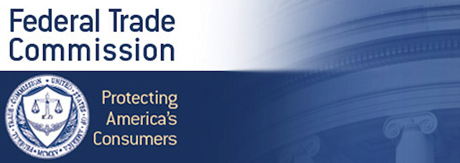HOW YOU CAN PROTECT AGAINST ID THEFT
3 Exposures … 3 Defenses

Identity Theft is Here, Accelerating and Probably Perpetual
No lesser agency than the FBI reports identity theft as America’s fastest growing crime. When your data is breached and hacked by fraudsters it can spell havoc. In addition to the potential for use of your stolen identity to obtain credit, illicit purchases or sensitive medical records, a major concern is the multiplier effect of data distribution by the perpetrators to other thieves … thus magnifying the devastating effects on you, the victim.
Many experts claim that it is no longer if you will be a casualty of identity theft, but when!
In this article we’ll take a look at 3 of the most likely circumstances that expose your personal data to the fraudsters and the 3 defenses to employ and lessen the likely of being cyber-mugged.
- Data stored by vendors and other third-parties
- 3 scams that even smart people fall for
- Tax related identity theft
Data Stored by Vendors and Other Third-Parties
We’ve all heard of the dramatic cyber-breaches at sizeable entities. Some from 2016 are worth a look. Identity Force lists many ranging from commercial enterprises to educational institutions and government agencies. You’ll recognize many that are cited just because of their size and the number of people victimized.

If you get a notice that your personal information was exposed to hackers, lost personal information or learn online accounts that you frequent have been breached, go to the Federal Trade Commission as your one-stop resource for both next steps as well as tips to help protect yourself from identity theft.
More recently, we’ve all seen the headlines of a data breach that may affect nearly 1 out of 2 Americans.
Giant Equifax data breach: 143 million people could be affected
Equifax says a giant cybersecurity breach compromised the personal information of as many as 143 million Americans — almost half the U.S population.
It is entirely likely that you may be affected by this major breach as Equifax is one of the “big-three” of credit information companies. It’s better to be safe than sorry, so visit this site to see if you are at risk plus enroll in complimentary identity theft protection and credit file monitoring offered by Equifax, click here.

3 Scams That Even Smart People Fall For
We’ve all seen the expression, “Gone Fishing”, meaning not currently available. Pronounced the same, scammers are “Phishing” to catch unsuspecting persons in their cyber-scam nets.
Phishing cons are among the most prevalent ruses and increasingly so in both intensity and sophistication. Simply put, phishing is identity theft through false emails and fraudulent websites seeking to capture your personal data – most commonly passwords, Social Security numbers and credit card information.
Be aware! The cyber-muggers get cleverer every day using real-sounding email addresses, your personal data (maybe from Facebook or other social media) and illegal use of corporate logos to appear both legitimate and trustworthy. So here are 3 of the current “phishing expeditions” to be alert for and ways to defend your self.
Travel Scams
We’ll bet that you would sit up and take notice when offered an all-expenses-paid vacation package to some exotic tropical luxury resort. And that’s what the travel-phishers bank on. Your offer is typically via email and will ask for a credit card number to ensure your reservation. Don’t bite!
Owed Money
You’re busy and may readily believe you have overlooked paying a bill, usually of a relatively insignificant amount, say $68.89. So when you receive an official looking letter marked “Payment Overdue: Remit Immediately to Avoid Assignment to Collection Agency” – you may be inclined to pull out your checkbook and set things right. But first, make sure it’s a legitimate claim by a genuine creditor.
Fake Shopping Websites
More and more Americans are opting for the convenience of online shopping. And the shopper-muggers know that too and are quick to set up sites to exploit internet buyers. So before you click an addition to your cyber shopping cart, be alert to the following signs that you should seek purchases elsewhere.
- Too good to be true prices. If it sounds too good to be true, it most likely is.
- Unprofessional looking website and lousy use of English
- Domain names with words like “sales” or “super discounts”
- Credit and debit card payments not accepted
- Contact info that looks strange or non-existent
- No refund policy or vaguely worded
When in doubt, avoid doing business on the site until you’ve Googled for complaints and use the Better Business Bureau Scam Tracker tool to see if others have reported the site.
Tax Related Identity Theft

A prevalent form of identity theft results in your tax return being filed by a cyber-burglar to obtain a fraudulent refund. You may not find out that you are a victim until you submit your tax return only to find out from the IRS that one of the bad guys used your Social Security number to file.
The IRS works hard to stop identity theft with a strategy of prevention, detection and victim assistance. View this brief video for an overview of those efforts.
If you are unable to e-file your tax return because of a previous filing by an impostor, the IRS recommends the following steps to report tax-related ID theft.
- File a tax return by paper and pay any taxes owed.
- File an IRS Form 14039, Identity Theft Affidavit. Print the form and mail or fax it according to the instructions. Include it with the paper tax return and/or attach a police report describing the theft if available.
- File a report with the Federal Trade Commission using the FTC Complaint Assistant.
- Contact Social Security Administration at ssa.gov and type in “identity theft” in the search box.
- Contact financial institutions to report the alleged identity theft.
- Contact the three credit bureaus so they can place a fraud alert or credit freeze on the affected account.
- Check with the applicable state tax agency to see if there are additional steps to take at the state level.
See this additional resource. Publication 5027, Identity Theft Information for Taxpayers
Summary
Identity theft is not going away. If anything, it is likely to morph into increasingly sophisticated tactics. While you cannot completely insulate yourself from identity theft, there are specific steps that you can initiate, administer and maintain to, at the very least, slow the bad guys down!
